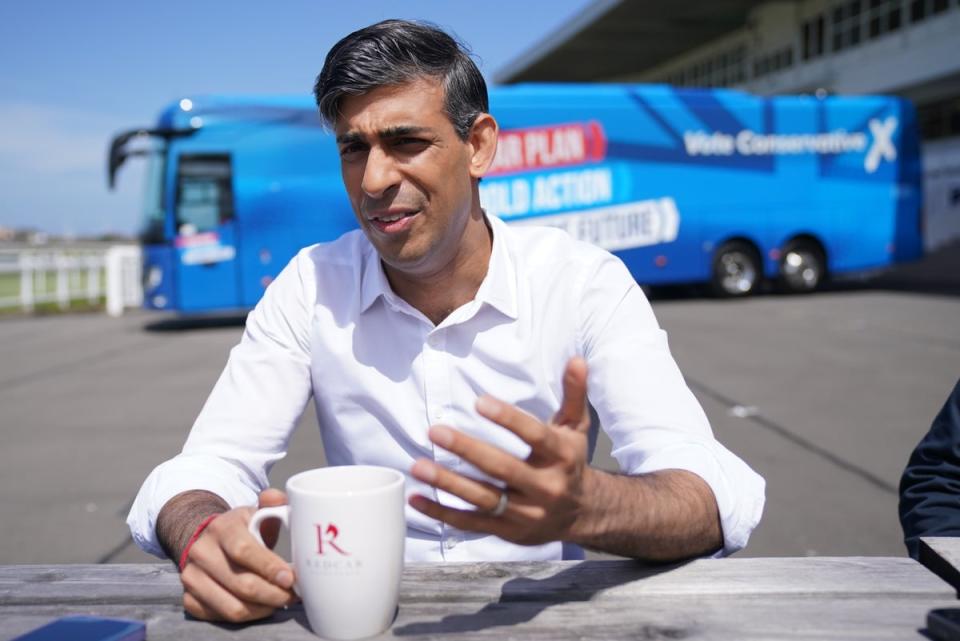Tories heading for election wipeout as new mega-poll suggests they could win just 66 seats
The Conservatives are heading for electoral disaster and could win just 66 seats in parliament, a new mega-poll suggests.
The result would be a Labour landslide, with Sir Keir Starmer’s party securing 476 MPs – a majority of 302 – once tactical voting has been taken into account.
Among the big names who could lose their seats are the deputy prime minister Oliver Dowden, home secretary James Cleverly and defence secretary Grant Shapps.
However, Rishi Sunak is expected to hold on in Richmond, North Yorkshire, although with a massively reduced majority.

The poll puts Labour on 46 per cent – a whopping 27 points ahead of the Conservatives on just 19 per cent.
The scale of the Tory defeat would see the party take just seven more MPs than the Lib Dems, who are predicted to win 59, according to the poll by Electoral Calculus and Find Out Now for GB News and the Daily Mail.
Electoral Calculus said: “Our figures indicate a substantial Labour landslide, with Keir Starmer gaining a majority of over 300 seats at Westminster.
“The Conservatives would have fewer than 100 seats. They would be the official opposition, but they would have less than half of the opposition MPs – 72 out of 157.”
The result could also have a striking effect on a Tory leadership contest, widely expected if the party loses the election.

Among the other cabinet members set to lose their seats under the poll are potential leadership contenders Penny Mordaunt and Kemi Badenoch, as well as others including education secretary Gillian Keegan, and transport secretary Mark Harper.
The poll is the first mega-poll of the campaign. Large-scale MRP polling, as it is known, surveyed 10,000 people taking tactical voting into account.
MRP stands for multi-level regression and poststratification. YouGov’s MRP poll in the 2017 general election correctly predicted the result.
When it comes to tactical voting at this election, pollsters believe a number of voters oppose the Conservatives so strongly that they will vote for whoever can oust them in their seat – not necessarily their first choice.


